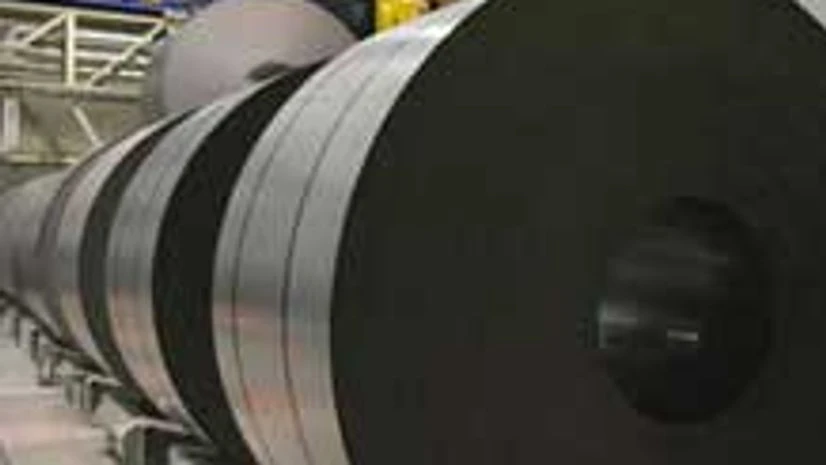The fact that ArcelorMittal abandoned plans to build a 12-million-tonne (mt) steel plant in Odisha's Keonjhar district, citing inability to acquire the required land and ensure iron ore security, has expectedly left the state administration disappointed, if not somewhat angry.
The project, would have required an investment of about Rs 60,000 crore, it was agreed upon in December 2006, when no one could foresee a financial crisis enveloping the world two years down the road. As the crisis unfolded, it took a heavy toll on all industrial commodities, including steel. Remember, Lakshmi Mittal who built a fortune in a display of rare skill in acquiring and turning around sick steel mills from Mexico to Kazakhstan, bought Arcelor at a price of $33.1 billion before the global meltdown. Tata Steel bought Corus in a dramatic shoot-out with rival bidder CSN of Brazil, by paying £6.2 billion.
Since those marquee takeovers, the world steel scene has seen profound changes, particularly in Europe, leaving ArcelorMittal with uncomfortable debt levels. Mittal, therefore, has made it a "key priority" for his company to go on reducing net debt---from $16.2 billion in June-end 2013 to $15 billion in the medium term.
More From This Section
| HURDLES APLENTY |
|
Owing to the increased attention on debt reduction and the fact that banks aren't particularly excited to fund steel projects, expect ArcelorMittal to pursue new capacity creation only if it finds local conditions to its liking. The company said, "Taking into account the current economic climate, it will no longer be pursuing its plans for a steel plant in Keonjhar at this stage." The world's largest steel group, with about 120 mt of capacity in four continents and which accounts for seven per cent of the global output, won't be found desperate to build a new mill. At the same time, a group of the standing of ArcelorMittal would, circumstances favouring, include India in its production chain. As it has stayed put in Jharkhand and Karnataka, hasn't ArcelorMittal left room for its returning to Odisha at some point by saying the steel project pursuit is abandoned "at this stage"?
Whether it is Posco, which, for the identical reasons of land acquisition challenges and uncertainty on iron ore security, scrapped its plan to build a six-mt mill in Karnataka, or ArcelorMittal or our home-grown groups, no enterprise could be unaware that the Indian regulatory and environmental landscape remains fraught with hurdles not easy to negotiate. What is also delaying land acquisition, in some cases to the point of projects being abandoned, is the trust deficit between owners and acquires of land, with non-governmental organisation queering the pitch. Here, patience is the name of the game. Posco, which first signed a memorandum of understanding with the Odisha government in June 2005 to build a 12-mt plant in Jagatsinghpur district, would get 2,700 acres only now; here, it can accommodate only eight-mt capacity. Surprisingly, it proved to be a nightmarish experience for the administration to secure the 2,700 acres, which almost wholly belongs to the government. The remaining eight mt of capacity, to be built in the second phase, is linked to Posco getting at least another 1,300 acres. Work on the ground would, however, start once environmental clearances are received. At the point of quitting Odisha, an ArcelorMittal spokesperson had said, "Over the past seven years, we have put considerable resources in the 12-mt project. But the delays in land acquisition and allotment of iron ore blocks have made the project unviable."
Since Posco and ArcelorMittal proposed their projects, not only have all cost calculations gone haywire, returns from steel have thinned to an extent that it is difficult to recover production costs. Therefore, expect ArcelorMittal to move with caution, as trying economic conditions, particularly in Europe where it is engaged in restructuring operations in a challenging environment, led it to record a net loss of $780 million for the quarter ended June, compared with a net income of about $1 billion in the corresponding period a year earlier. Posco's operating income for the quarter ended June was weaker on a year-on-year basis, owing to subdued demand in China and South Korea. Germany's largest steelmaker, ThyssenKrupp, lost ^656 million in the June quarter.
The structural crisis in the European steel industry is leaving huge capacity in that region deep in the red. In a paper, 'Ensure a future for steel in Europe', the European Commission said the industry was being pulled down by low demand, rising energy costs, growing reliance on imported raw materials and competition that wasn't always fair. India, along with China, Russia and Egypt, has come in for criticism for protecting domestic steel producers by way of "export restrictions and export duties on raw materials". What continues to haunt Europe is steel demand in that region has fallen 30 per cent from the pre-crisis peak of 2007. The European industry has, however, been able to switch off about 10 per cent of blast furnace capacity. In the first year of this year, apparent steel use in Europe fell five per cent, following a nine per cent decline in 2012. Is there hope the steel outlook would finally improve? Mittal finds "recent trends more positive, particularly in developed markets".

)
